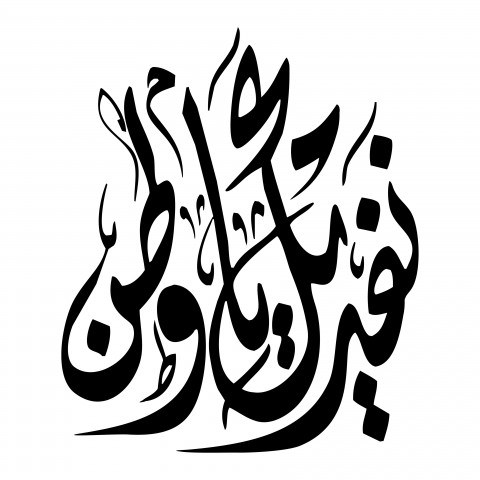
Wouldn’t it be fantastic to speak flawless Arabic?
It’s a language that flummoxes students around the world daily. Even in Arabic-speaking countries, people are divided on what’s really “correct” and “proper” Arabic.
The truth is, you really don’t have to speak Arabic by the book in order to show your respect for the cultures and languages of Arab people. A little really does go a long way!
In this article, you’ll see some of the most common mistakes Arabic speakers make when learning the language, as well as the best ways to overcome them.
 Table of Contents
Table of Contents
- Pronunciation
- Vocabulary Mistakes
- Word Order Mistakes
- Arabic Grammar Mistakes
- Uniquely Arabic Mistakes
- The Biggest Mistake
- Conclusion
1. Pronunciation

Arabic pronunciation involves trying to get your tongue and mouth to do a lot of things they probably aren’t used to. For that reason, a lot of learners end up imperfectly tackling Arabic pronunciation.
One of the classic giveaways of a heavy foreign accent in Arabic is the vowels.
Modern Standard Arabic has just three vowels: /i/ as in “see,” /u/ as in “you,” and /a/ as in “father.”
You’ll also need to pay attention to long and short vowels. In English, “long” and “short” mean an actual change in the vowel sound, but in MSA, it’s literally a vowel that’s held longer or shorter like a musical note. This is a matter of rhythm in the word and in the sentence, so be sure to listen to a lot of Arabic content to get comfortable with the intonation.
Vowels are probably the biggest giveaway, but ask any learner what the hard sounds are in Arabic, and they’ll answer “consonants.” Arabic has whole groups of consonants that are totally absent in most European and Asian languages, meaning that no matter how many other languages you speak, Arabic is probably going to challenge you with its sounds.
The hardest one for most speakers is ع, written as “3” in a lot of unofficial transcription systems because of the Arabic letter’s similarity to the digit. Most sounds in most languages are made with the tongue maneuvering around and tapping the roof of the mouth or otherwise shaping the airflow.
The ع, by contrast, is made by bringing the back of the tongue as far back as possible. In all honesty, it’ll be uncomfortable when you first start doing it, but the more reading and speaking aloud you do, the more natural it will feel.
2. Vocabulary Mistakes

Every language has confusing pairs of words that make learners hem and haw over the right one to use, and this is the type of mistake Arabic-learners need to be cautious of.
In Arabic, these word pairs unfortunately pop up quite frequently. This is especially true if you’re just learning from the written word instead of from audio. You know, the whole vowel-marking thing? Here’s a couple of examples:
الكِليَة (al-kilyah) – “kidney”
الكُلِّيَّة (al-kulliyyah) – “college”
السُكَّر (al-sukkar) – “diabetes,” “surgot”
السُكر (al-sukr) – “drunken stupor”
تَوَابِل (tawabil) – “spice”
تَبَوُّل (tabawwul) – “urination”
Although the triliteral root system does let you easily learn related words, when unrelated words come up that happen to share the same consonants, they really mess with your memory!
The solution here is to listen to tons of Arabic audio. A word like al-koliya is going to come up a lot earlier than al-kilya in your learning, especially if you follow podcasts like ArabicPod101.
If you can connect the written word in your reading exercises to the spoken word from your listening, you’ll avoid confusing them because of a lack of vowel diacritics. Thankfully, almost all of our content on ArabicPod101.com has a vowelled version in case you’re unsure of how a word is pronounced.
Other typical vocabulary mistakes stem from the fact that Arabic makes distinctions that other languages might not. Take the simple conjugation for “and” for example.
وَ (wa) is the word for “and” when it connects two clauses or verbs:
أبي مُدَرِّسٌ و أمّي رَبَّةُ بَيْت.
ʾabī mudarrisun wa ʾummī rabbatu bait.
“My father is a teacher and my mother is a stay-at-home mom.”
تُمَّ (ṯumma) can also be translated as “and,” but it connects two actions in a sequence!
أَكَلتٌ ثُمَّ شَرِبتُ.
ʾakaltun ṯumma šaribtu.
“She ate first and then she drank.”
You can think of translating fa as “and then…” Before you get more advanced in Arabic, it’s totally normal to be translating things in your head. As long as you can think in an Arabic sentence structure, you can compose your sentences in English first.
3. Word Order Mistakes
Another type of mistake in Arabic to watch out for is using incorrect word order. For some people, adjusting to a different word order is a cinch; for others, a different word order ties their brain in knots from the get-go.
Prescriptively speaking, the verb always comes first in an Arabic sentence. However, as you watch more and more videos and TV programs in MSA, you’ll see that they occasionally switch the word order around to add emphasis to a certain part of the sentence.
يَذهَبُ اِبراهيم إلى السوق.
yaḏhabu ʾIbrāhīmu ʾila s-sūq.
“Ibrahim goes to the market.”
Note how the verb ذَهَبَ (ḏahaba), meaning “to go,” is conjugated and placed at the beginning of the sentence. In some European languages, placing the verb before the subject is a marker of a question. Not so in Arabic!
4. Arabic Grammar Mistakes

The most common mistake that even advanced students make in Arabic is failing to correctly make the verb, adjective, and noun agree in a sentence.
So, for instance, a student might write:
مِحوَرُ الشِعر هِيَ الروح. X
miḥwaru al-šiʿr hiya al-rūḥ. X
“The focus of poetry is the soul.” X
When it should actually be:
مِحوَرُ الشِعر هُوَ الروح.
miḥwaru al-šiʿr huwa al-rūḥ.
“The focus of poetry is the soul.”
Modern Standard Arabic has a lot of rules that don’t show up in any of the colloquial dialects that are spoken day-to-day. For that reason, tons of people in Arabic-speaking countries tend to be more comfortable writing in English or French than MSA! A lot of native speakers, for instance, might make mistakes with the dual:
لَدَيَّ أُختان.
ladayya ʾuḫtān.
“I have two sisters.”
لَدَيَّ ثَلاثُ أَخَوَات.
ladayya ṯalāṯu ʾaḫawat.
“I have three sisters.”
Lots of learners end up just using the plural form for two things without thinking. After all, the dual as a grammatical feature is relatively rare in the world’s languages.
5. Uniquely Arabic Mistakes

Up until this point, we’ve been discussing things that might apply to every language in the world. Plenty of languages have hard grammar and pronunciation, after all!
But there are a couple of mistakes that pretty much only Arabic-learners tend to make.
Like the plural forms of words—in Arabic, you kind of just have to memorize them. There are so many exceptions!
Also, numbers tend to trip a lot of people up. The number system in Arabic is beautifully complex (if you’re into that sort of thing), but so complicated that most native speakers tend to ignore its intricacies.
And with colloquial varieties of Arabic spoken in dozens of countries, you’ll often find yourself misunderstood if you use a word from one dialect with speakers of another. You could spend a lifetime learning all the little subtleties of the lexicon, like how دولاب (dulab) means “closet” in Egypt but means “wheel” in most other dialects.
Some people might suggest that you try to “speak Egyptian,” as many people understand Egyptian slang words, but the best way to avoid confusion is to use terms that are as close to MSA as possible if you don’t know the local term.
6. The Biggest Mistake

The biggest mistake is perfectionism. As they say, perfect is the enemy of good enough.
Tons of Arabic students end up letting their hard-earned knowledge slip away for fear of offending others.
Suppose you even end up taking the plunge and staying in an Arabic-speaking country for awhile with the goal of pushing yourself into speaking. If you’re anxious about speaking incorrectly, you’re probably going to end up just using English with the internationally minded local community in coffee shops and hip restaurants.
But that isn’t going to improve your Arabic—it’s going to actively harm it.
The more you actually put yourself out there and speak Arabic with others, the more you’ll learn. Sure, you’ll make mistakes from time to time, but everybody does.
In fact, since most people tend to not be that comfortable with spoken MSA, the fact that you can speak it correctly—even some of the time—is going to be quite impressive!
7. Conclusion
One of the best ways to avoid being embarrassed about making mistakes is to use your free time to get as prepared as possible.
Fortunately, it doesn’t have to be a hard slog. Just reading about and seeing the examples in this article is a big step on that path to high-quality Arabic.
And when you have a great all-in-one resource at your fingertips, like ArabicPod101, with audio lessons, vocabulary lists, and flashcards, you’ll be able to target your studying.
Try it out now and see for yourself how good your Arabic can become!
Before you go, we would love to hear from you in the comments. What Arabic mistakes do you struggle with the most?










